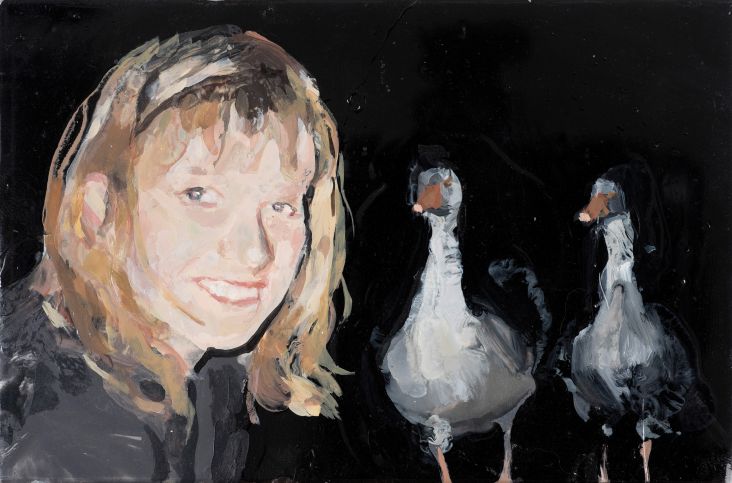Want to be a digital nomad? Here are 10 things to consider
The beach and a laptop is the ultimate dream for many. And even if just temporarily, being a nomad might be something you might want to try. If you’ve read last year's interview with me here on Creative Boom, you might know I’ve been on the road since the end of 2014.

Image licensed via Adobe Stock
Since then, every day has been different, and many days started with stepping out of a different bed, eating breakfast in a different city, and falling asleep on someone's sofa I might not have known before that day.
Since going freelance, I’ve worked in cafés and co-working spaces. I’ve sat on rooftops. I’ve "stolen" wifi from restaurants and even private homes. Just as a side note: if you live in Brooklyn, and your password is, you’ve guessed it, "Brooklyn", it’s not hard to get onto your network.
Over the past two years, I’ve published two books about freelancing, and I’m currently editing the third one, Work Trips and Road Trips, a guide for the curious, the restless, and the adventurous freelancer. Every time I’ve decided to publish a book, it’s mostly been to explore a subject, I was interested in myself.
First, I wanted to know how one starts as a freelancer. Then, I was curious about how one can avoid having dry months. Now, with the third instalment of the Insightful Guides for Creative Freelancers, I’ve been trying to understand how freelancers can carve out time for a vacation, or at least bring their work on the road with them.
Having spoken to 15 ladies about how they find a balance between work, travel, and taking time off, I wanted to share 10 of the most valuable insights they shared with me.
1. You don’t have to be rich to travel
Money equals convenience. The less discerning you are, the easier it will be for you to afford travel. It starts with booking flight tickets: if you’re flexible about the exact date you want to leave or arrive somewhere, and the less specific you are about a destination, the longer you can make your money last. Instead of booking hotels, consider staying with friends, couch-surfing, staying at a hostel or finding a room via Airbnb. The more flexible you are with your choices, the more you’ll experience.
2. However, have a safety cushion
In the book Rich Dad. Poor Dad., Robert Kiyosaki explains that you’re rich until you have to work again. There are different ideas to how much money one should keep on the side, but from the interviews I’ve conducted, for most, it’s between €5,000 and €10,000, which is something like ₤4,000 to ₤8,000, or $6,000 to $12,000.
The majority of digital nomads have very different spending patterns compared to people with what you might consider a more typical lifestyle. Once they’re on the road, they hardly ever spend their money on possessions. They know they don’t have space to keep things or don’t want to carry more than they already do. Digital nomads might, however, spend money you might spend on clothing or Starbucks for getting from A to B.
If you’re an American reader, you might want to consider playing the credit card game, which is a strategy for spending money with credit cards through which you can collect air miles. Please don’t forget to read the small print before you sign anything!
3. Reduce your fixed costs, even before your departure
Whether you give up your apartment, sublet it while you’re gone, or move to an extremely affordable place that might be cheaper than a storage room, try to reduce your fixed costs to a bare minimum. Giving things away that you’ve collected since childhood might be challenging; for some more than for others. Marie Kondo’s book, The Life-Changing Magic of Tidying Up, might be a good way for you to start reducing your possessions. If you sell the things you no longer need, you might also make some extra cash for your travel budget.
4. Organise yourself
Being practical, especially when you’re planning to leave for an extended period, is helpful. Go to a doctor for a general check-up and don’t forget to bring your vaccination certificate. Think about what you’ll do about your physical mail. Can you register a vacation mailbox at your local post office? Can you register a travelling mailbox so you can get your physical mail scanned and sent to you? Have you talked to your bank to check that you have the best possible deal and won’t get extra charges another bank wouldn’t charge you for? It’s the small things, the things you might usually keep postponing, that you should take care of before you leave!
Although it’s 2017, being a nomad isn’t all too familiar, and thus, you should make sure everything bureaucratic will be taken care of while you’re exploring other corners of the world.
5. Communicate clearly
Once you have an established client base and your clients know and trust you, they don’t necessarily care if you sit in London or Cape Town. If you’re planning to be in a different timezone, make sure your clients know what time of the day you can be reached in real-time. Always meet all expectations and deliver high-quality work, so your clients know that they can count on you.
6. Find work while you’re on the road
If you lose a client while you’re on the road, don’t panic! There are several Facebook groups and Slack chat rooms in which digital nomad entrepreneurs hire other nomads.
What I’d personally recommend is to start building products as soon as possible. Teach your skills on Skillshare, sell your graphics on Society6 or on Spoonflower. Do a little research on how you could create differently scalable (others call them passive) income streams.
If none of these strategies works, try one of the many freelancer recruiting platforms, such as CloudPeeps, Upwork, or Fiverr. Just be warned, it takes a while to establish a high enough rating to be hired through them more regularly.
7. Seek out a local community
If you haven’t discovered it already, The Nomad List is a beautiful Slack community where you can find chat rooms divided by location and find people online. You can also look for a local co-working space and rent out a flex desk while you’re in the area to connect with other like-minds.
I’m a massive fan of meetup.com, which is a site I look at whenever I move to a new country. Another, possibly more surprising, place to find people who gather in a region and that are happy to welcome new faces are groups on Couchsurfing. Many of its members organise language classes and free city tours, or they even cook together!
8. Put yourself on a schedule
If you’re a freelancer, you know self-motivation is key to success. While you might be okay with how things are at home, it might all change once you’re on the road. Digital nomads are known for working far more than typical employees. Most of them are in the growth phase so that they can spend hours and hours behind the screen. Make sure that wherever you go, you establish a daily rhythm that allows for exploration. If, on the other hand, you struggle sitting down to work, choose a real place where you can go and don’t have anything else to do besides working through your to-do list.
9. Allow for things not to work out as planned
As Europeans or Americans, let’s say, we’re very set on how things are supposed to be. We're very spoilt by how well things work. At least, most of the time. Our public transport comes on time, our cars are well maintained, our electricity works, and our wifi, even though sometimes a little slow, is still reliable.
When you’re somewhere else, it’s likely that all of what you’re used to, and don’t even notice anymore, might suddenly become a struggle. If you have deadlines, make sure these are never within 48 hours around your arrival or departure day. You never know if everything you need to get your work done will function properly. If you’re asked to give time estimates, always include buffers.
10. Enjoy the present moment
The most beautiful thing about travel is that it teaches you to be present, in the moment. Travel makes us aware of the little things we so often overlook in our day-to-day because we tend to take things for granted. If there’s one thing you should strive to learn while you’re on the road, it’s to strengthen your ability to appreciate the ordinary and the mundane.
Learn to be a traveller and practice to keep the attitude, even if you get back to a place that you believe you’ve known well for a lifetime. You’ll be surprised at all the things you’ll suddenly notice.
This article was written by Monika Kanokova, a freelance community and content strategist, helping businesses to find the right ways to communicate with their customers. A travelling nomad, she is also the author of two books for freelance creatives, including This Year Will Be Different and My Creative (Side) Business, with another one on the way (Work Trips and Road Trips).




 by Tüpokompanii](https://www.creativeboom.com/upload/articles/58/58684538770fb5b428dc1882f7a732f153500153_732.jpg)

 using <a href="https://www.ohnotype.co/fonts/obviously" target="_blank">Obviously</a> by Oh No Type Co., Art Director, Brand & Creative—Spotify](https://www.creativeboom.com/upload/articles/6e/6ed31eddc26fa563f213fc76d6993dab9231ffe4_732.jpg)









](https://www.creativeboom.com/upload/articles/6f/6f1a2330ea0c42ecd0bd0f9a19be5f540a0aa96e_732.jpeg)



](https://www.creativeboom.com/upload/articles/e7/e7cafab030d31c8263cf954f5cd38f1a3be6349d_732.jpeg)
](https://www.creativeboom.com/upload/articles/af/afe03826eb65d6ab8b133c904905f16897badb3c_732.jpeg)

](https://www.creativeboom.com/upload/articles/d5/d5f0a368da2f4b2292e7c09fd81ebe170572e5f8_732.jpeg)
